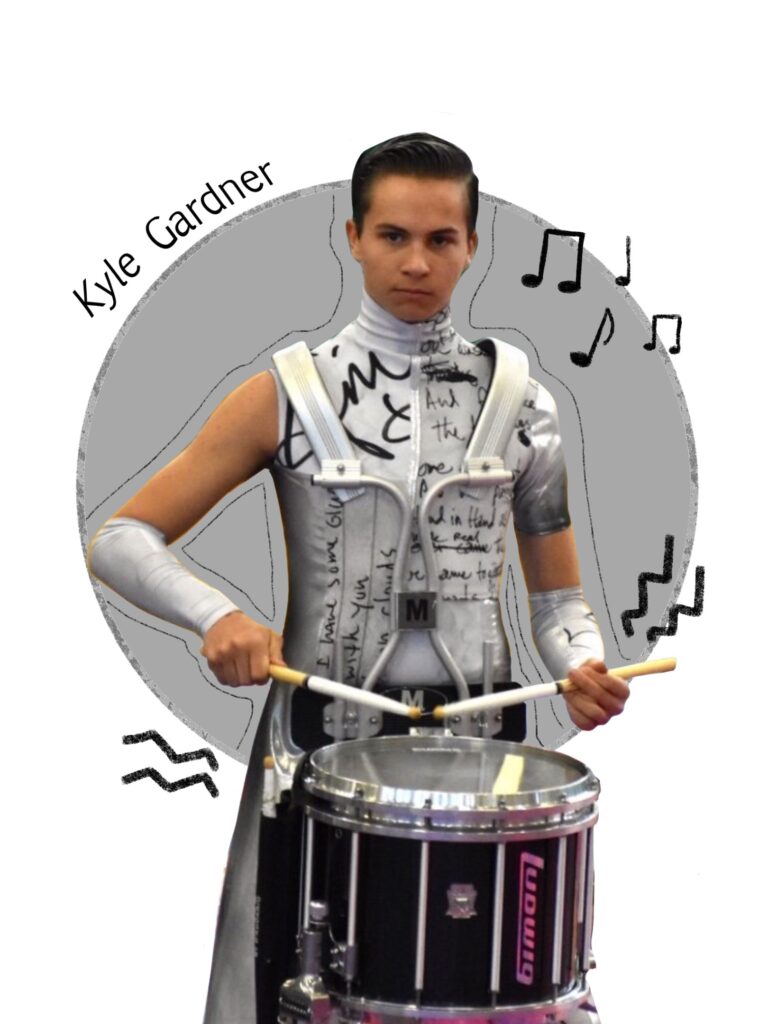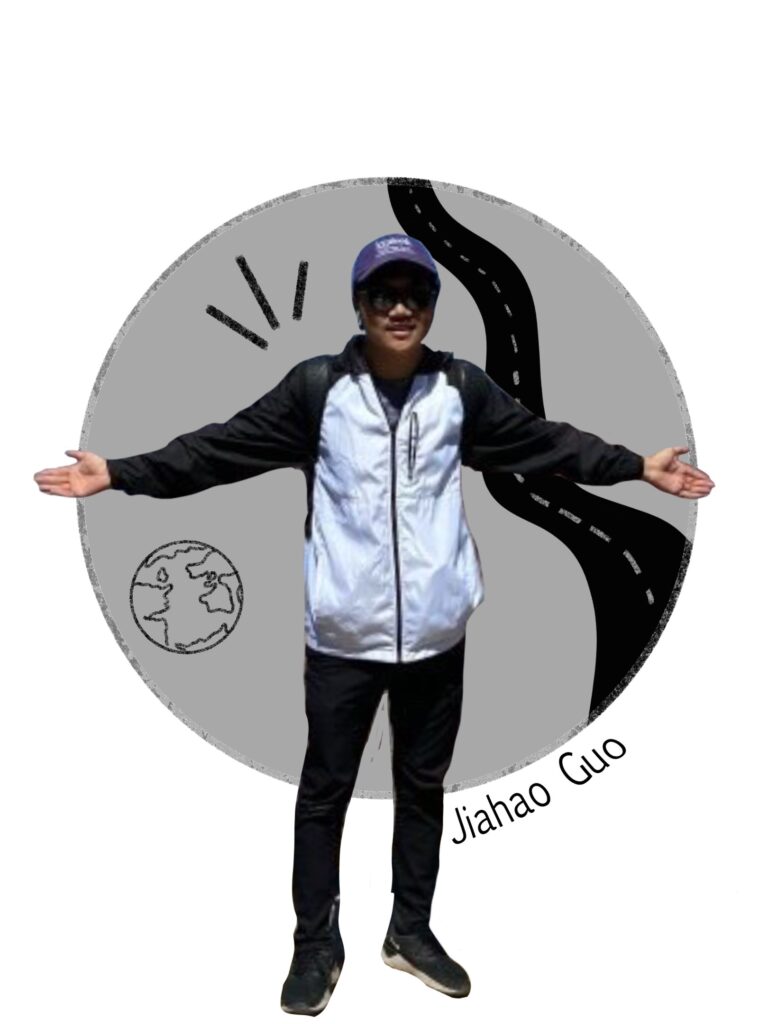Seniors explore gap years as opportunities to escape school pressures
Ally Guo | Staff Writer
The expectation is to begin college right after high school, but some seniors are taking a gap year before the school bell rings again.
A gap year is when students choose to wait a year after graduating high school before pursuing college or some other form of higher education. Many use this time to volunteer, travel, explore career options, find internships or paid work, or explore interests and passions. While there are specific gap year programs available, those are often expensive, and some students prefer to design their own plans to fit their own unique reasons.
Senior Jiahao Guo said that he had “long decided” to take a gap year after talking to several college graduates and current college students who told him about experiencing burnout, which carried over from high school into college.
“Of those [I talked to] who [did] not take gap years, they wish they had because it’s basically a four year blitz of nonstop homework and tests [in high school],” Guo said. “Then, afterwards, it’s another four year blitz [in college]. Having one year to better define the direction that you want to take, especially at a young age, is really important.”

According to Guo, he himself experienced burnout throughout high school due to heavy pressure and competition, describing the toll maintaining high academics, participating in many extracurriculars and summer programs, and looking for internships and research opportunities took on him.
Guo said he believes the issue of burnout in students is often left overlooked and unaddressed, as most modern mental health practices, such as talking to a therapist, while potentially helpful, fail to address the root causes of burnout, which he defines as a “very high emphasis on achievement and hard work.”
“[Burnout is] an even greater reason to consider [taking a gap year] because even though you may be seen as hardworking or ambitious now, burnout [is] the silent killer,” Guo said. “It’ll put you out of nowhere and then boom, all of a sudden, when you think everything’s going well, it’s not.”
For senior Kyle Gardner, burnout was also the “single biggest contributor” to his decision to take a gap year.
“I didn’t want to go straight into college,” Gardner said. “I made the decision during the summer before senior year started, and I was like, ‘You know, this is nice — not having to worry about school for an extended period of time.’”
Another reason why Gardner decided to take a gap year was so that he could continue to participate in Winter Guard International (WGI), which runs from November to late April, as a member of the ConneXus Percussion Ensemble, a drumline similar to a marching band but independent of any school.
Gardner said he attempted to participate in WGI concurrently with school junior year and while he enjoyed the program, he “hated balancing [it] with school.” Since WGI took up all of his time, leaving him with no free weekends from early December to March, it disrupted his ability to focus on schoolwork.
Besides WGI, Gardner is also interested in getting a full-time job so that he can save up money for college or other future plans.
For Guo, describing himself as a more “internationally-oriented” person, there are three things he wants to do during his gap year: charity work in Southeast Asia, foreign college programs in Mongolia and Tibet, and general internships.
Working with a local nonprofit in Cedarville, Guo hopes to travel to Southeast Asia, specifically Myanmar, to participate in volunteer initiatives. Although the current situation in Myanmar is uncertain due to the recent coup d’état, the nonprofit is also active in countries such as Cambodia and Nepal, so Guo has already tentatively made plans for this service work.

Additionally, Guo said that he has a “great interest in Mongolia and Tibetan” and has been looking into non-American college programs in both of those regions, such as those offered by the Mongolian National University.
According to Guo, he plans on studying international relations or something business or finance related, but his decision is not set in stone. Similarly, Gardner said that although he harbors an interest in architecture and has considered going to college for music education, potentially becoming a band director, he is also thinking of joining United Airlines’ pilot training program, United Aviate, instead.
“Being a pilot is something that I want to do,” Gardner said. “That, you don’t even need to go to college for. [With] United’s pilot training, after you go through [the] online course, [which is] like a substitute for college, they feed you straight into their pilot programs — [then] just straight into a job.”
In the case that they do reapply for college this upcoming application cycle, neither Guo nor Gardner believe their overall college experience will be significantly negatively impacted by having taken a gap year.
“Ultimately, a 19 year old is not going to be all that different from a 20 year,” Guo said. “One year isn’t going to make isn’t gonna make or break the difference.”
Despite this, Guo said he believes a “social distance” could potentially form during a gap year. Specifically, working at a nonprofit that does not attract many volunteers at the typical college age could “[hinder the] ability to foster real connections or to even maintain the connections that you already have.” However, Guo said this could be viewed as both a drawback and a benefit.
“Throughout high school, throughout basically our entire lives, we all have basically the same routine of going to school, talking with friends, interacting with people who are basically identical to ourselves, at least on the macro level,” Guo said. “In adult life, you have to deal with being in environments that you’re not comfortable with. I guess [that] also could be a big plus and a big reason why people take gap years.”
Although an increasing number of colleges support gap years, with some institutions offering deferred enrollment or their own opportunities to admitted students, taking a gap year is still uncommon in the country. Gardner said that many people still do not know what a gap year is and that he himself was unaware of that possibility until well into high school.
“Everyone that I knew was going to college right after [high school],” Gardner said. “Before, I would assume by default that I would be doing the same thing. Sophomore year, that was the first time I’d ever actually heard about what a gap year was, and I was like,’ Oh, that’s a thing? People do that?’”
Similarly, Gardner said that whenever he tells people that he is going to take a gap year, there is always “some confusion, as if they don’t know that’s a thing that they can do.” Gardner said a possible reason why high school graduates are expected to immediately begin college is because it is considered the best way for people to “hurry their way through life” and “get a job as fast as possible.”
However, in spite of taking a gap year being a relatively rare decision, both Guo and Gardner said that their family and friends were supportive of their choice.
According to Gardner, he suggests that students take a gap year if they are having difficulty balancing their education with a simultaneous activity outside of school, which will allow them to better “excel at both of the things instead of doing them both at the same time and not doing either one of them very well.”
“I don’t think there [are] any wrong reasons for taking a gap year,” Gardner said. “The only time I could see [it] becoming an issue ever is if you have no plans or no way of making a living without going into college. And when you take a gap year, you realize you can put off college more and more, and then you dig yourself into a hole of ‘Oh, I’ll do it next year.’”
Similarly, while Guo cautions against taking a gap year “just for taking a gap year,” making poor use of the time and energy it provides, or incurring a financial burden from paid programs, he recommends that students take a gap year if they have have a “better thing” they’d like to do during that time.
“If you have some sort of thing that you want to pursue further or maybe that isn’t as commonly entrenched within the present education system, a gap year is definitely a good idea in that case,” Guo said.
Graphics by Rachel Cai
